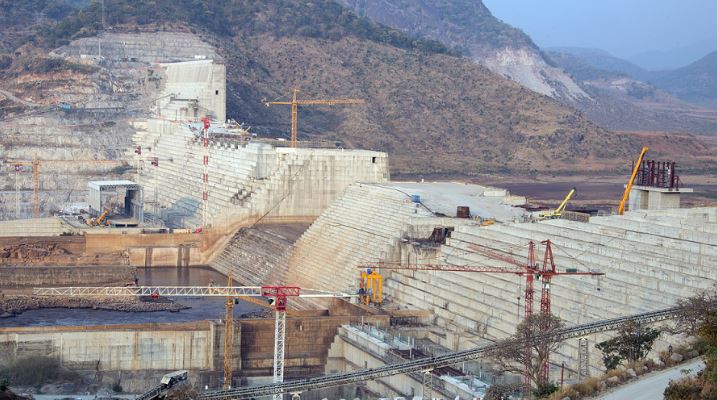
Egypt urges UN to prevent Ethiopia from filling Nile dam without agreement

Egypt has called upon the United Nations Security Council to “undertake its responsibilities” and prevent Addis Ababa from starting to fill the Grand Ethiopian Renaissance Dam next month as it pledged.
Egyptian Foreign Minister Sameh Shukry in an interview with The Associated Press on Sunday, accused Ethiopian officials of stoking antagonism between the countries with their plot to go on with plans to fill the dam before an agreement is reached.
“The responsibility of the Security Council is to address a pertinent threat to international peace and security, and certainly the unilateral actions by Ethiopia in this regard would constitute such a threat,” said Shukry.
Ethiopia hopes the massive hydroelectric dam will make it Africa’s largest electricity exporter, but Cairo has long expressed fears that building the $5 billion dam will threaten water supplies that have fed Egypt’s agriculture and economy for thousands of years.
Sudan, which also largely depends on the Nile for water, has been caught between the competing interests.
The three countries have been locked in months of negotiations with little success. One of the biggest points of dispute revolves around the timeframe for filling up the dam.
In his interview with The Associated Press, Shukry warned that filling the reservoir without an accord would violate the 2015 declaration of principles governing their talks — and rule out a return to negotiations.
“We are not seeking any coercive action by the Security Council,” he said. In a three-page letter to the council, Egypt asked it to call Ethiopia back into talks for a “fair and balanced solution” and to urge it refrain from unilateral acts, warning that filling the dam without a deal “constitutes a clear and present danger to Egypt” with repercussions that “threaten international peace and security.”
Ethiopia Prime Minister Abiy Ahmed and President el-Sisi have met on many occasions previously, but a deal remains elusive. Both have however expressed confidence that the dispute will be resolved amicably.
Shukry noted that Egypt is confident an agreement can be achieved, but that it “has to be negotiated in good faith.” He said any future deal on shares of the Nile’s water should take into account that Ethiopia has other water sources besides the Nile.






